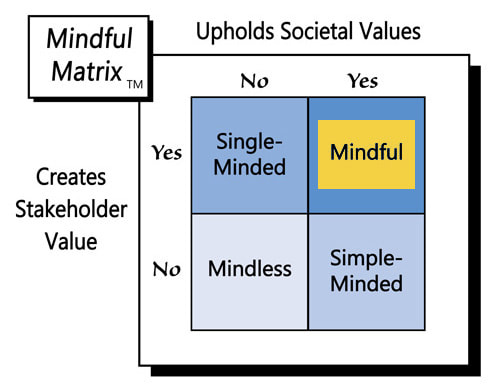The Catholic Church recently surprised many of its parishioners and others by introducing an eRosary, “a wearable device connected to a mobile app that's activated by making the sign of the cross.” While paying homage to traditional rosary bracelets, the new product’s black agate and hematite beads, paired with a “carefully finished” gunmetal-color cross, make the modern version appear very ‘apple-esque.’
Many have heard of people praying with rosary beads, but if you’re not familiar with Catholicism, here’s a quick primer. The Holy Rosary, or Dominican Rosary, is a very important prayer for Catholics that is arranged in sets of prayers called decades. Holding a rosary bracelet or chain in one’s hand and feeling each individual bead helps followers recite the prayer’s Hail Marys and other specific petitions in the proper sequence.
The Rosary is a central part of many Catholics’ spiritual lives, as praying it guards against trials and temptations and serves as a buffer against all types of evil. Pope John Paul II declared that the Rosary was “among the finest and most praiseworthy traditions of Christian contemplation.”
The Vatican’s eRosary offers much more functionality than just feeling beads with one’s fingers. Working with an app, the digitally-designed bracelet lets users choose the specific rosary they would like to recite (e.g., standard or thematic), then charts the devotee’s prayer progress and tracks completion with “the guide of special audiovisual contents.”
The Vatican suggests the device serves as “a meeting point between technology and spirituality” that “unites daily life and prayer,” helps one “pray deeply,” and unites people around the challenges that confront humanity and the mission of the Church.
The eRosary also touches the physical realm, acting as a “personal health assistant” by recording fitness data and providing wellness information. In doing so, the device encourages people to live healthier lives.
However, wearable technology can’t just do things; it also needs to look good on those wearing it. Fortunately, the eRosary marries form and function. The Pope’s Worldwide Prayer Network suggests that the device lies where “simplicity meets elegance” thanks to its stylish black and silver colors and its “simple lines and curves.”
So, why is the Vatican marketing a ‘faith-based fashionable Fitbit’? Engadget suggests the Catholic Church is “hoping to attract tech-savvy youngsters.” It’s true that Gen Zs increasing expect digitally connected experiences. Also, any organization that wants to stay in existence must remain relevant to the next generation of ‘consumers.’
Still, we’re talking about the Church and faith. Doesn’t technology distract from meaningful spiritual experiences? Or, perhaps even more important, is it right for the Catholic Church, which has about 1.28 billion adherents, many in countries with low per capita income, to sell a product that costs 99€ (about $110) on Amazon?
First, it’s helpful to remember that technology influencing faith isn’t just a recent phenomenon; it’s interface dates back as least many hundreds of years. In 1452, Johannes Gutenberg printed 180 copies of the now famous Gutenberg Bible. In many ways, the use of moveable type technology to mass print the Bible and other religious books democratized Christianity and formed the foundation for a revolution in the Church.
Over the years, other new technologies also have impacted people’s spiritual lives in, often in positive ways. For instance, radio and television have allowed people to share religious information with others thousands of miles away. Advances in construction have enabled the building of larger and more functional places of worship. And, automobiles are what many people use to travel to those worship centers.
However, when one arrives at a church, synagogue, or mosque, there’s usually not a fee at the door. The notion is that religion should be free to all. ‘Growing closer to God shouldn’t be based on one’s ability to pay.’
Fortunately, there’s nothing to stop even the poorest person from offering prayers of petition and gratitude to the Divine. And, if people are mobile, they might walk or share a ride with other believers to a place of worship where they can venerate God and learn together for free.
Some religions also make copies of their key texts available to others for free. For instance, Wycliffe Bible Translators, a nonprofit mission organization, has translated the Bible into hundreds of different languages since its founding in 1942. Likewise, the Gideons International gives away thousands of Bibles a year in most of the world’s countries.
Then, how do eRosaries, iPhones with Bible apps, and other faith-related merchandise fit with the notion that religion should be free? All of the items that cost money to aid reverence are optional. They may be helpful to those who can afford them, but they’re not essential for a relationship with God.
A useful metaphor might be a social medium like LinkedIn. Some people who have needs for more advanced features pay for LinkedIn Premium. In contrast, for many years I’ve used the free version of the platform, which meets all of my professional networking needs and more. Just as I’m not precluded from enjoying LinkedIn because I don’t pay, people who don’t buy eRosaries or similar religious products are not prevented from relationships with God.
It is possible to live without digital devices. Also, sometimes when we have them, we let them get in the way of fruitful living. Used properly, however, it’s not hard to see how technology can benefit religious practice, much as it enhances other areas of life. It’s great to be able to share prayer requests via email, send text messages of encouragement to others, study the Bible on an iPad, and listen to podcasts of sermons online.
Because I’m not Catholic, I’ve never experienced confirmation, gone to confession, or prayed the Rosary. It appears, though, that an eRosary can help those participating in one of Catholicism’s central religious practices. For people of faith, digital devices that enrich their spiritual lives and bring them into closer relationship with God and others, seem to be “Mindful Marketing.”
Learn more about the Mindful Matrix and Mindful Meter.
Check out Mindful Marketing Ads and Vote your Mind!




 RSS Feed
RSS Feed